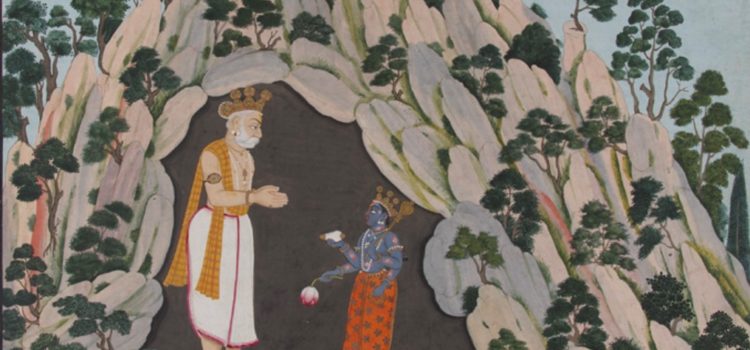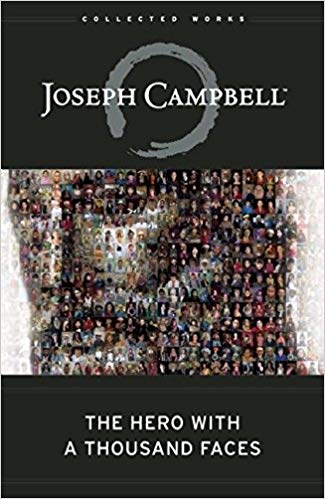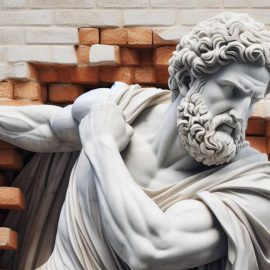

This article is an excerpt from the Shortform summary of "The Hero with a Thousand Faces" by Joseph Campbell. Shortform has the world's best summaries of books you should be reading.
Like this article? Sign up for a free trial here .
Who is Muchukunda? What did he want more than anything else, and what does this Hindu story have to do with Joseph Campbell’s hero’s journey?
We’ll cover the story of King Muchukunda and his desire to sleep forever, and we’ll look at how King Muchukunda’s journey follows the mythological template of the hero’s journey.
Muchukunda and The Mythological Template
Although the settings and plots of myths vary widely across time and space, from the Homeric poems of ancient Greece to the enlightenment of the Buddha in India to the Christian story of the birth and resurrection of Christ, they all share a certain core set of themes, a standard template. This template is the mythological adventure of the hero—someone who sets out on a journey, often with the help of a sage guide and allies along the way, overcomes obstacles, and achieves some sort of transformation which he or she then shares with the world. This can either be the sharing of a literal bounty (bringing abundance and prosperity back to a hungry and impoverished community) or a deeper, more spiritual redemption of a wayward and fallen people. The story of King Muchukunda follows the hero’s journey template.
The essential feature, the basic common denominator of mythology, is the monomyth. It is the core structure of the myths, the journey that all heroes must undergo. It involves three rites of passage—separation, initiation, return. From the myths of the ancient Egyptians and the medieval Arthurian legend to the folk-tales of the native Maoris of New Zealand, the pattern of the hero’s journey usually follows this cycle: a separation from the world he or she has always known (embarking on the quest), gaining some spiritual or other-worldly power, and a return in which they share the boon of the new power with humanity. As we’ll see, the story of Muchukunda is especially relevant to the last stage, the return stage, of the hero’s journey.
There are familiar beats throughout world-legend—the call to action; the initial reluctance of the hero; the aid of a supernatural helper; the crossing of the threshold into the world of the unknown; union with the mother-goddess; the slaying of the father-god; the return to the land of the living; and the sharing of the ultimate boon.
The Journey, Stage Three: Return
After the completion of the quest, the hero must return home with their bounty, be it Jason’s Golden Fleece, or the Little Briar Rose of German legend. This also applies to King Muchukunda. The final piece of the monomyth now requires the hero to share this wisdom, this hard-won prize back to the real world, where it will benefit the hero’s community, and, possibly, the universe.
Refusing the Return
But sometimes, mythology records a hero, like Muchukunda, unwilling to return to the world. Just as they may have refused the initial call to adventure, so they may refuse their duty to return home and bestow their newfound wisdom upon the rest of humanity. Even the Buddha, after his victory at the Tree of Enlightenment, doubted if it was even possible to bring the joy of true enlightenment to other mortals. It is tempting for the hero to simply turn away from the world and reside forever in Paradise.
King Muchukunda‘s Refusal
In an ancient Hindu legend, King Muchukunda is granted his wish for eternal sleep after helping the gods defeat an army of demons (his Ultimate Boon). He further requests that anyone who attempts to rouse him be burned to a crisp when he lays eyes upon them. He sleeps through the ages as empires and civilizations rise and fall.
After a great period of time, a youth named Krishna (an incarnation of Vishnu, Lord of the World) comes to power. In the course of a battle, Krishna is pursued by an enemy barbarian king into the cave where Muchukunda is enjoying eternal sleep. As Muchukunda awakens, the barbarian is burned alive, as is Krishna. Muchukunda laments what he has done and curses the folly of his worldly pursuits. As he emerges from his cave, he sees that men have become smaller and crueler. Despairing, he retreats back into his cave to live a life of asceticism and self-denial.
———End of Preview———

Like what you just read? Read the rest of the world's best summary of "The Hero with a Thousand Faces" at Shortform . Learn the book's critical concepts in 20 minutes or less .
Here's what you'll find in our full The Hero with a Thousand Faces summary :
- How the Hero's Journey reappears hundreds of times in different cultures and ages
- How we attach our psychology to heroes, and how they help embolden us in our lives
- Why stories and mythology are so important, even in today's world







Hi Amanda
Dont you think King Muchukunda’s story points to the writer being aware of time as a dimension and that time moves at different rate in cosmic environs?.Does it not pique interest that how come people were writing about time dilation at that time?This was 4000 years ago atleast.Mythology hides phenomenon that we are observing and accepting now in mainstream science
Ciao